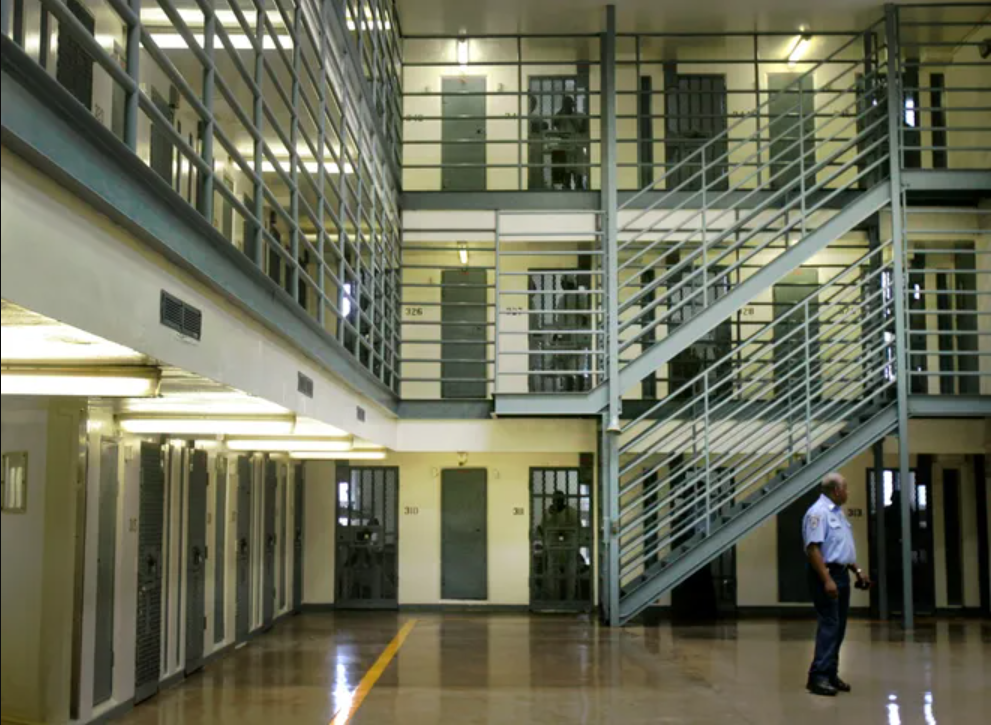By Premal Dharia (Executive Director of the Institute to End Mass Incarceration) and Chris Kemmitt
Via USA Today
Our legislatures and courts have armed prosecutors with so much power that they can – and often do – determine the trajectory of people’s lives.

Picture a criminal trial: Prosecutors grill witnesses on cross-examination, judges rule on objections, defense counsel makes impassioned pleas to the jury, and the jury sifts through the facts before returning a verdict. That might be how many people think the legal system operates.
As the Supreme Court has observed, however, this is not what happens in the real world. Instead, plea bargaining is how the criminal legal system operates. This means, of course, that plea bargaining is a key part of how mass incarceration operates, too.
Plea bargaining lets courts incarcerate people for decades with little accountability. When it comes time to negotiate a plea bargain, it is prosecutors who hold all the power: They control the charges and what to offer based on those charges. They also have the means to increase the chances the other side feels forced to take the offer.
How prosecutors just got more powerful
Of course prosecution can lead to incarceration, and the United States has an especially problematic record with regard to incarceration. According to the Prison Policy Initiative, “Every single U.S. state incarcerates more people per capita than virtually any independent democracy on earth.”
Black people are incarcerated at nearly five times the rate of white people, according to The Sentencing Project.
Simply put, our legislatures and courts have armed prosecutors with so much power that they can – and often do – determine the trajectory of people’s lives, and in the 6th Circuit U.S. Court of Appeals – which is just below the Supreme Court – prosecutors just got more powerful.
Can an engineer act like a cop?:A court gave him immunity.
Here’s the backstory: Ashley Townsend was indicted in federal court in Michigan in 2020 for possessing firearms and controlled substances. Based on the charges and a sentencing enhancement sought by prosecutors, Townsend, if convicted on all charges, would have faced up to 20 years to life in prison.
The prosecution made Townsend a plea offer. Using a process known as charge-bargaining, they offered to drop some charges – reducing his possible sentence to 10 to 25 years – in exchange for a guilty plea. Townsend, like so many others in the U.S. criminal legal system, found himself facing a difficult decision.
But the prosecution, whose duty it is to “seek justice,” wasn’t finished.
Nearly all federal defendants take the plea bargain
Next, they demanded that Townsend waive his right to appeal his conviction, any sentence under 300 months, and almost every other possible path to judicial review of his conviction and sentence. The waiver basically required Townsend to give up rights that he did not know he had to contest his sentence.
If the law changed in Townsend’s favor in the future, for example, the waiver could still keep him stranded in prison. Under the waiver, mistakes that happened in the trial court would never be challenged, prosecutorial misconduct might never come to light, and prosecutors’ power to coerce people into “too good to refuse” deals would continue unfettered.
Townsend, like 97% of federal defendants in 2020, accepted the plea agreement.
The judge who oversaw the case, however, said no. The appeal waiver, he ruled, removed too many of the checks built into the criminal system. Nonetheless, the 6th Circuit not only reversed the trial judge but issued an opinion that expanded the ability of prosecutors to do what they want, while limiting the ability of judges to do anything about it.
Smart on crime:Tempted to push for tough-on-crime policies? You need to meet these 3 people.
Final word doesn’t rest with the court
But the courts do not necessarily have the final word on this issue. In 2021, Attorney General Merrick Garland learned that many federal prosecutors, whom he oversees, were seeking similar plea waivers to prevent future claims for compassionate release.
After lawmakers and judges around the country decried the inhumanity of the practice, sparking pointed news coverage of the issue, the Justice Department put an end to it.
The 6th Circuit decision stands in contrast to the Department of Justice’s intervention in that instance, and that contrast is important. It’s important because of the direction it takes us in as a country.
The fork in the road that our nation faces is not imaginary: Our criminal legal system is destroying millions of lives as we speak, lives that are disproportionately Black and brown.
Rather than starting to end the coercion of plea bargaining and limiting the power of prosecutors, the system empowers them to coerce even more.
We already know where that fork leads, and it is our duty to reject it.
Chris Kemmitt serves as deputy director of litigation at the NAACP Legal Defense and Educational Fund, Inc. Premal Dharia is executive director of the Institute to End Mass Incarceration at Harvard Law School.
Filed in: Op-Ed
Contact Office of Clinical and Pro Bono Programs
Website:
hls.harvard.edu/clinics
Email:
clinical@law.harvard.edu